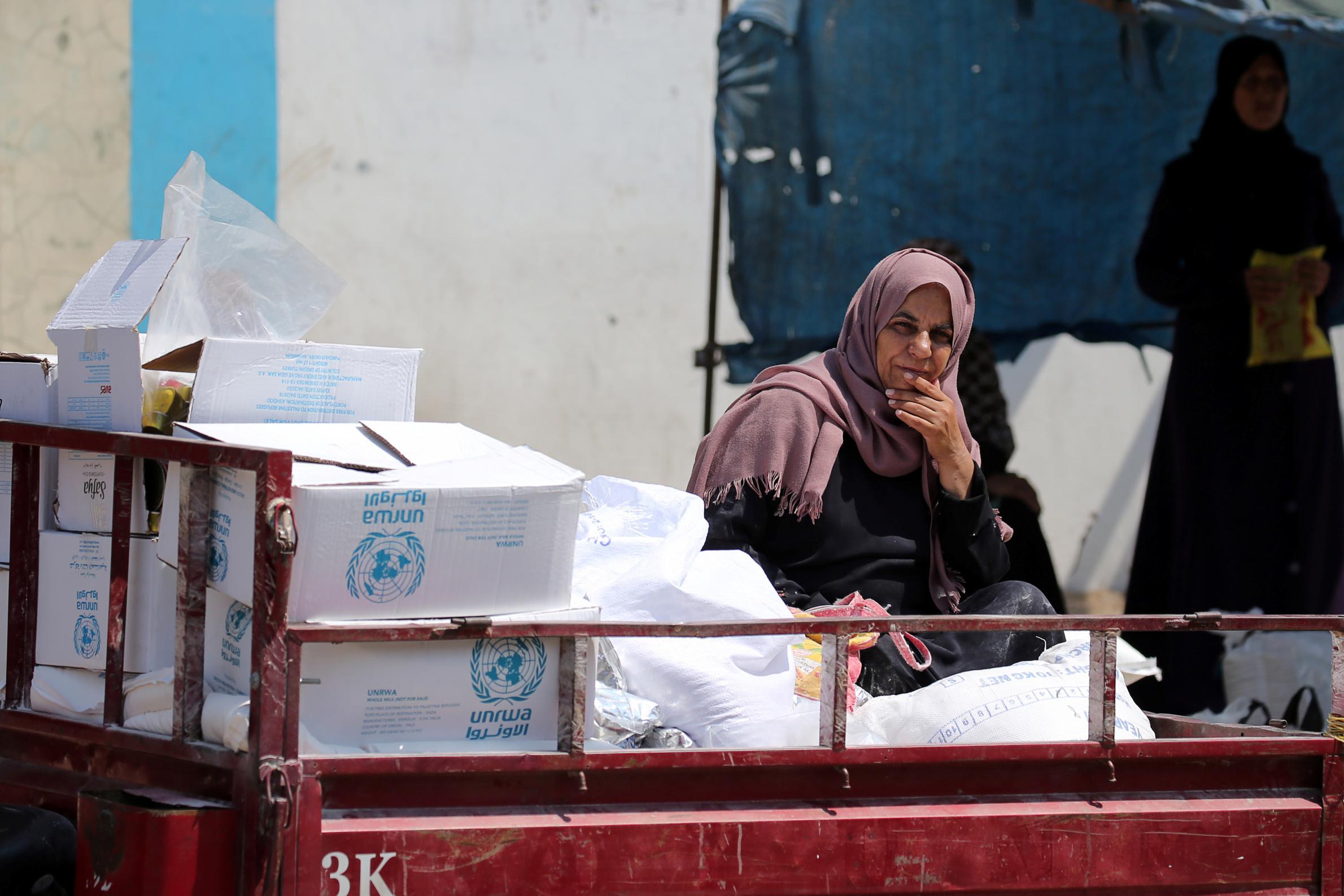UK steps up contribution to Palestinian refugees after US cuts aid
The contribution does not completely make up for the US cut, however

Your support helps us to tell the story
From reproductive rights to climate change to Big Tech, The Independent is on the ground when the story is developing. Whether it's investigating the financials of Elon Musk's pro-Trump PAC or producing our latest documentary, 'The A Word', which shines a light on the American women fighting for reproductive rights, we know how important it is to parse out the facts from the messaging.
At such a critical moment in US history, we need reporters on the ground. Your donation allows us to keep sending journalists to speak to both sides of the story.
The Independent is trusted by Americans across the entire political spectrum. And unlike many other quality news outlets, we choose not to lock Americans out of our reporting and analysis with paywalls. We believe quality journalism should be available to everyone, paid for by those who can afford it.
Your support makes all the difference.The UK has said it will contribute more money to aid Palestinian refugees after Donald Trump's administration announced it would cut funding.
The US announced late last week it was cutting off its contributions to the United Nations Relief and Works Agency (UNRWA), the primary group responsible for providing education and health care to the refugees.
Minister for the Middle East Alistair Burt announced the Department for International Development (DFID) will contribute an additional $9m (£7m) to keep schools open for half a million children and provide medical care for nearly four million refugees in the West Bank, Gaza Strip, Lebanon, and Jordan.
The money, Mr Burt noted in a statement, is being allocated from other DFID funds and brings to the UK contribution to the UNRWA to $59m (£45.5m).
Mr Burt said in a release the UK is “deeply concerned about the devastating impact a shortage of funds for UNRWA could cause on those that rely on its services, as well as the consequences this could have for regional stability”.
The UK stopped short in its plea for the international community to step up its contributions to the effort to blame the US for needing to increase its contribution.
However, the US had been the largest contributor ahead of its 1 September announcement, accounting for nearly two-thirds of the UN agency’s budget and putting a halt to those contributions will likely have a negative effect on refugees.
In 2016, the US contributed $335m to the relief agency and a similar sum was planned for 2018.
In January 2018 though, the US decided to give the agency $60m in aid but said it would withhold another $65m “for future consideration.”
The withheld amount is now expected to be cancelled.
Israel has routinely criticised the agency for being biased and allowing its facilities, like schools and clinics, to be used by Palestinian militants - which the UN denies.
US State Department spokesperson Heather Nauert had said the administration “carefully reviewed” its plan of support, ultimately concluding UNRWA is "irredeemably flawed".
In cutting the aid package, the administration appeared to be in line with Mr Trump's 2 January tweet in which he wrote that Palestinians were receiving "hundreds of millions of dollars" but gave the US "no appreciation or respect."
US Ambassador to the UN Nikki Haley has routinely cited an anti-Israel bias in various UN agencies, UNRWA included.
It was she who reportedly pushed to completely cut funding after the January 2018 announcement.
She was talked down after Defence Secretary James Mattis and then-Secretary of State Rex Tillerson indicated that if the relief agency's efforts are severely hampered it could cause further unrest in Jordan, another US ally which also hosts several million Palestinian refugees.
Join our commenting forum
Join thought-provoking conversations, follow other Independent readers and see their replies
Comments